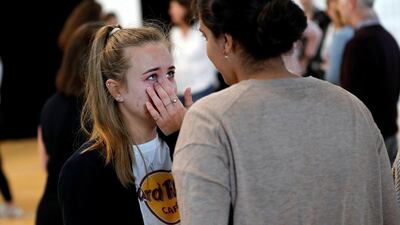So you underperformed in your A-levels. Now your life is ruined and the creeping sense of failure is bleeding into everything – every happy smile and joyful laugh reminds you that you are so very, very rubbish.
Except your life isn’t ruined. Things are probably going to be a little different to how you had planned, but you are in the process of learning one of life’s most important lessons – you are not perfect, and it is how you deal with these kind of curveballs that counts.
I failed my A-levels. Well, to be completely honest, I didn’t even take my A-levels, or my GCSEs – I left school at 15 with no qualifications and no clue what would happen next. My dad was sick, my family very unsettled and my behaviour unruly. Even getting myself as far as the school premises had become impossible.
A few years before, I had been an award-winning, A-grade pupil; a kid so uncool that I did mathematics workbooks at home for fun. Once the realisation settled in that I had “failed” school, I was devastated.
I had to watch from a distance, bitter and jealous, as my classmates celebrated their GCSE results; as they went on to college, took their A-levels and then headed to university, which in some cases was Oxford or Cambridge. I struggled to hide the feelings of inadequacy as they graduated with good degrees and seemed to immediately get great jobs, while I couldn’t even find a college that would take on a school drop out.
My mum would always try to console me by saying that Richard Branson never had any qualifications either. With almost zero entrepreneurial spirit and likely to also fail to become a business magnate or a billionaire, it just made me feel worse.
I felt useless and dejected. It seemed that my life was over before it had really begun and I was scared that it I might never recover. But you are not and should not be defined by your academic success or failure. It’s true that the path you thought you were on may now have gone forever, and the route you will take may be more winding, more pot-holed, but some people do things differently and that’s ok.
It might be tough and it might be more work, but let’s just call this the scenic route.
After 10 years in the “real world” of barely held down restaurant, shop and admin jobs, and even a brief stint as a hairdresser’s assistant, I managed to get a place in university on the strength of a portfolio of my work. Since then I have done a degree, a master’s degree and gone on to become a news journalist in the Middle East – remarkable, given I had wanted to study science.
More important than finally obtaining qualifications though, was learning that life is about making mistakes and getting past them. My school years are not what defines me, but moving beyond them has given me the tools to keep fighting for what I want in life, no matter what. You might be hurting right now, but if you can learn to pick yourself up from this there will be no stopping you.


